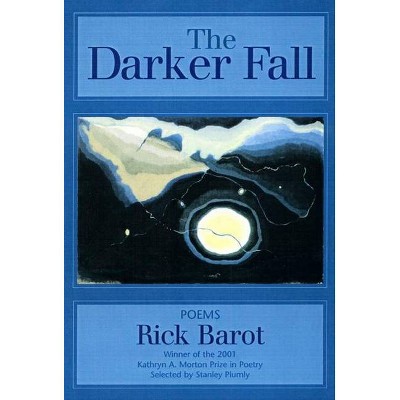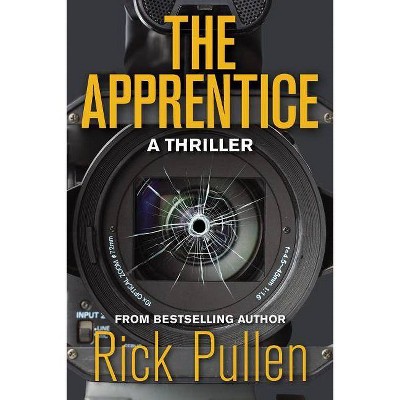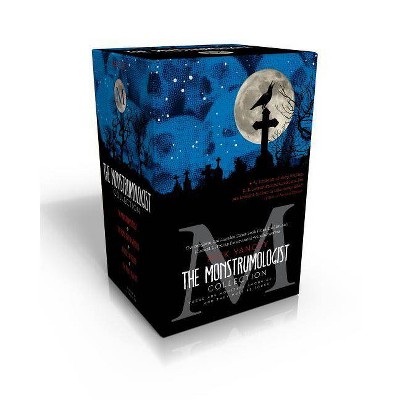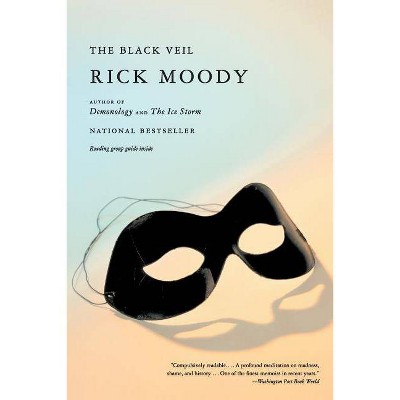The Galleons - by Rick Barot (Paperback)
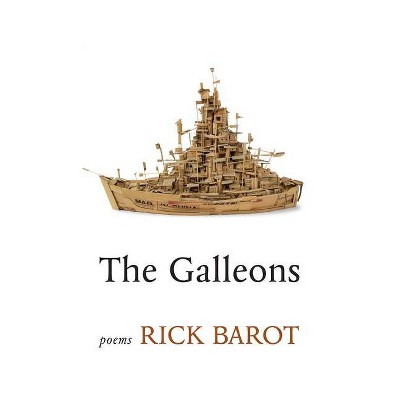
Similar Products
Products of same category from the store
AllProduct info
<p/><br></br><p><b> About the Book </b></p></br></br><b>"A very American book, and an important one for our time." --CATE MARVIN</b><p/><br></br><p><b> Book Synopsis </b></p></br></br><b>For almost twenty years, Rick Barot has been writing some of the most stunningly crafted lyric poems in America, paying careful, Rilkean attention to the layered world that surrounds us. In <i>The Galleons</i>, he widens his scope, contextualizing the immigrant journey of his Filipino-American family in the larger history and aftermath of colonialism.</b> <p/> These poems are engaged in the work of recovery, making visible what is often intentionally erased: the movement of domestic workers on a weekday morning in Brooklyn; a veteran of the war in Afghanistan, fondly sharing photos of his dog; the departure and destination points of dozens of galleons between 1564 and 1815, these ships evoking both the vast movements of history and the individual journeys of those borne along by their tides. "Her story is a part of something larger, it is a part / of history," Barot writes of his grandmother. "No, her story is an illumination // of history, a matchstick lit in the black seam of time." <p/> With nods toward Barot's poetic predecessors--from Frank O'Hara to John Donne--<i>The Galleons</i> represents an exciting extension and expansion of this virtuosic poet's work, marrying "reckless" ambition and crafted "composure," in which we repeatedly find the speaker standing and breathing before the world, "incredible and true."<p/><br></br><p><b> Review Quotes </b></p></br></br><br><b>Praise for <i>The Galleons</i></b> <p/> In his impressive fourth collection, Lamdba Literary Award-winning poet Barot (<i>Chord</i>) critiques imperialism and capitalist excess through the recurring symbol of the galleons that sailed the Spanish conquistadors to the New World. 'Galleons' poems feature lists of plundered objects, names of ships, and even the poet's Filipina mother's life story. Each is a journey through Barot's labyrinthine thought process; rarely does he go where you'd expect . . . Barot skillfully synthesizes historical themes with a personal vision that establishes a meaningful relationship to the reader. --<b><i>Publishers Weekly</i>, Starred Review</b> <p/> <i>The Galleons</i> reckons with origins and histories, both personal and public, on a global scale . . . [it] sweeps the reader along in an unfolding narrative tide. <b>--The Rumpus</b> <p/> This ambitious new work by multi-award-winning poet Barot (<i>Chord</i>) presents his family's immigration from the Philippines to America as part of a larger investigation: What is history, and how does it comprise our stories? . . . The result is a quietly assured unwinding of a key aspect of human history. --<b><i>Library Journal</i>, Top Ten Spring Poetry</b> <p/> My favorite poetry collection so far of 2020 . . . There's something so clean and compressed and illuminating about each of the book's meditations in couplets that once you finish one, you want to read another. --<b>Jason Koo, <i>Kenyon Review</i></b> <p/> I've long admired Barot's writing, and this is his strongest work to date: the poems are psychologically and emotionally complex, while never losing their essential lyricism . . . It's a wonderful book. --<b>Paisley Rekdal, <i>Orion Magazine</i></b> <p/> <i>The Galleons</i>, rich with somber beauty and insight, concludes that the spinning threads in the vortex of history are after all made by ordinary bodies: they engender complex lineages, loves, wars, sorrows, triumphs, and losses. <b>--RHINO Poetry</b> <p/> "In Rick Barot's masterful book, <i>The Galleons</i>, the past is weighted down--heavily inlaid with riches and masterpieces, all of which are inscribed with someone's grief. Throughout the collection, the speaker conducts research which is likened to a ritualized mourning, finding the source of someone's pain turned into someone else's wealth. The poems achingly coalesce into understandings of art and domination. Ultimately, Barot's unflinching ability to serve as a conduit for these revelations results in poems that are astoundingly beautiful. <i>The Galleons</i> is significant, the work of a poet at the height of his powers."<b>--Oliver de la Paz</b> <p/> "<i>The Galleons</i> is a book of realizations. It's a very American book, and an important one for our time. The freight of New World goods--its trinkets, totems, bodies--washes up on the shore of the speaker's mind as he contemplates circumstance, privilege, and sacrifice left in the wake of imperialism. Moreover, these poems actively relinquish the desire to romanticize history, and in this manner the very notion of epiphany is called into question. Poem after poem undertakes the difficult lesson of arriving at the limitations of seeking transcendence through art. <i>The Galleons</i> represents a turning point in Rick Barot's work, and it's a frankly amazing experience to chart these waters with him."<b>--Cate Marvin</b> <p/> "Both stately and restless, Rick Barot's <i>The Galleons</i> wrestles European mercantilism with an intimate grip, tracing a personal and historical journey from the Philippines to the Americas. With his 'grudging faith / in the particular, ' Barot deftly oscillates between the sensuous beauty of a life keenly observed and the larger forces that inform and threaten it. 'Longer than I can remember, ' he writes, 'I have prayed to the patron saint / of eyesight for a new way, a new accuracy.' Reader, his prayers have been answered!" <b>--Philip Metres</b> <p/> "In <i>The Galleons</i>, Rick Barot brings his understated virtuosity and perceptual sensitivity to bear on issues of postcolonialism, representation, memory, and grief. Other poets have engaged with these topics, but what is remarkable here is that Barot dares to enter these arenas with a kind of radical defenselessness--having laid aside the armor of authority, attitude, or agenda. The panoptic scope of these poems shows us beauty and cruelty, love and doubt with a clarity that is both thunderous and crystalline. Barot has a well-deserved reputation as a poet's poet, and this is his most marvelous work to date." <b>--Monica Youn</b> <p/> At one point in <i>The Galleons</i>, Rick Barot self-deprecatingly writes, 'Aiming for a muscular / logic that could be followed by a reader's mind / like an old stone wall running along a landscape, I got / nothing so solid or continuous.' Solid or not, though, the logic these poems follow so often leads to surprise and delight. Whether using docupoetics to contextualize history, or intimate narrative to make the ordinary resonate, Barot's poems coalesce to form a memorable investigation of colonialism and immigration. <i>The Galleons</i> is a remarkable book. <b>--Danny Caine, Raven Book Store</b> <p/> Rick Barot's newest book is a beautiful, understated collection of poems inhabiting the liminal spaces between history, memory, and the present. Structured around a series of poems titles, 'The Galleons, ' Barot explores the history of his own Filipino-American family and the role that trade and colonialism played in their journey. He interweaves these larger themes with profoundly beautiful detail of the everyday: flowers, a photo of someone's dog, the way the stone in an old church smells. Deeply layered and full measured insight, <i>The Galleons</i> is a wonderful collection of poetry. <b>--Caleb Masters, Bookmarks</b> <p/> In his latest collection, Rick Barot tackles a dizzying expanse of history, largely focusing on the lingering effects of colonialism while gradually revealing his own family's story as immigrants from the Philippines. (My breath caught when I encountered the stark simplicity and weight of the central poem, 'The Galleons 6'.) However, what most stood out to me was his 'grudging faith in the particular'--how he positions the beauty and significance of the individual within the globe he crisscrosses and moments he ponders. Layered and lyrical, it's the closely observed details--the sound of the ocean beyond a meadow, jars of tamarind listed in one wrecked ship's manifest, say--that make these poems come alive and invite the reader into the journey Barot is embarking on. With language that is uncomplicated and unassuming, he mounts an internal exploration and an outward voyage, one that is singular and sweeping, and ultimately hopeful of the human spirit, those unrepeatable sparks that reside with all of us. <b>--Ben Groner, Parnassus</b> <p/> <b>Praise for <i>Chord</i></b> <p/> "A fastidious monster--is there such a thing? Rick Barot is such a thing. He seems to take everything in, to devour, but what he gives back has been refined and clarified. In 'Syntax, ' he writes of the sky as 'a white light painful to the eye / because it is not specific.' Barot wants to be specific, wants to get things right. Here, he has. He's a fine observer who knows when to apply torque to what he sees and when to let his images speak for themselves. I loved that I could feel him wrestling to understand his life, even while the poems make clear that he knows the limits of understanding. The fluidity with which Barot walks this difficult line between meaning and certainty makes these poems feel more born than made. This is a fantastic book." <b>--Bob Hicok</b> <p/> "Rick Barot's new book <i>Chord</i> opens with the stunning poem 'Tarp' and its disconcerting reminder that no piece of cloth is big enough, real enough to cover a wave, a war, or 'a broken / oil well miles under the ocean.' In the same way, no art can begin to encapsulate the difficulties that the natural world and the world of human desire represent. <i>Chord</i> examines--subtly, and with great beauty--the limits of representational art and language, specifically our need to aestheticize suffering, even as we know this same desire also serves to blunt or negate human trauma. This is the paradox that Barot explores: our desire to express the facts of this world while recognizing that we lack--will always lack--the right language for it. <i>Chord</i> is a smart, moving, and elegant collection that takes none of its hard-won assertions for granted."<b>--Paisley Rekdal</b> <p/> "What strikes most is the range between the lyric and the stories, between the personal and the historical, and between the heart and those held close to it. These are but a few of the ways in which we hear the vibrations in all that Rick Barot surveys. If these poems don't move you, have your hearing checked."<b>--A. Van Jordan</b> <p/> <b>Praise for <i>Want</i></b> <p/> "After my first reading, I believed the image of a 'marble nipple' embodied the sculpted intensity of <i>Want</i>. After a second reading, I decided the book's defining image was the carnality of a 'puggish, miniature barbell pierced into a nipple.' By the fourth and fifth readings, I realized Rick Barot was gliding easily between classic and romantic, formal and organic in his explorations of desire. But frankly, I've grown too intoxicated, too gripped by this wonderful collection to reduce it to a single idea. In Barot's hands every poem casts at least two luminous shadows. <i>Want</i> is masterfully merciless and merciful at the same time."<b>--Terrance Hayes</b> <p/> "Rick Barot's exquisite and subtle sensibility, like Keats's, is led in equal measure by a tough intellect and an open heart. He follows his own prescription to 'Tell each story cold.' . . . Want is dexterous and thrilling, and his capacious and generous vision shows us how the eye survives 'to correct the heart.'"<b>--Michael Collier</b> <p/> <b>Praise for <i>The Darker Fall</i></b> <p/> "This is a book of lyric wonders: wit that turns dark, darkness that blazes up again in music and story. These are poems of eros and elegy. But they also have a rare, unswerving quality of dailiness. The cockroach and the jasmine and the heartbroken speaker all coexist in this world, made vivid in these poems by the exuberance and skill of a wonderful new poetic voice." <b>--Eavan Boland</b> <p/> "Though <i>The Darker Fall</i> opens with a poem entitled 'Reading Plato, ' both the poem and the book are finally an argument against that philosopher of the eternal forms. This poet chooses the actual every time, and finds the numinous there. A section of one poem is called 'Inventory, ' and that could be applied to the book as a whole: Rick Barot is a poet in love with the multiple and particular items of the phenomenal world. 'The shuffle of images' is always with him. Initials scratched into a cab partition, a glove lying on the grass: in these poems 'a precise light [is] found for each, ' illuminating in every sense."<b>--Reginald Shepherd</b> <p/><br><p/><br></br><p><b> About the Author </b></p></br></br><b>Rick Barot</b> was born in the Philippines and grew up in the San Francisco Bay Area. He has published three previous volumes of poetry: <i>The Darker Fall</i>; <i>Want</i>; which was a finalist for the Lambda Literary Award and won the 2009 GrubStreet Book Prize; and <i>Chord</i>. <i>Chord</i> received the UNT Rilke Prize, the PEN Open Book Award, and the Publishing Triangle's Thom Gunn Award. It was also a finalist for the Los Angeles Times Book Prize. His work has appeared in numerous publications, including <i>Poetry</i>, the <i>New Republic</i>, <i>Tin House</i>, the <i>Kenyon Review</i>, and the <i>New Yorker</i>. He has received fellowships from the National Endowment for the Arts, the Artist Trust of Washington, the John Simon Guggenheim Memorial Foundation, and Stanford University. He is the poetry editor for the <i>New England Review</i>. He lives in Tacoma, Washington, and directs The Rainier Writing Workshop, the low-residency MFA program in creative writing at Pacific Lutheran University.
Price History
Cheapest price in the interval: 13.49 on October 23, 2021
Most expensive price in the interval: 13.49 on November 8, 2021
Price Archive shows prices from various stores, lets you see history and find the cheapest. There is no actual sale on the website. For all support, inquiry and suggestion messagescommunication@pricearchive.us
